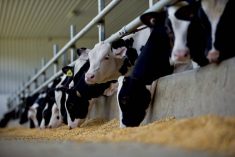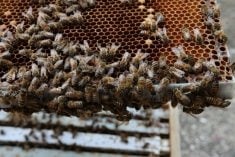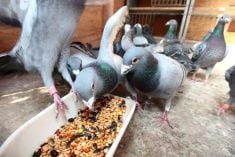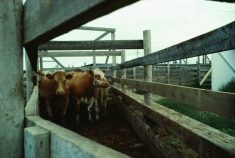Cases of avian flu in commercial poultry in the U.S. and Mexico earlier this year are believed to have come from wild birds, which are now migrating north for the season, the Canadian Food Inspection Agency warned Friday.
Avian influenza spreads when wild birds come into contact with commercial/small flocks, the agency said, urging producers and small flock owners to check their biosecurity plans to stop disease from “flying, walking or rolling” into their flocks.
People can also carry avian flu viruses on their hands and boots, or bring it in on vehicle tires, the agency said, noting farms’ staff and service providers can also pose a risk to flock health.
Read Also

Mexico agriculture secretary says still no date for restarting cattle exports to U.S.
Mexican Agriculture Minister Julio Berdegue said on Wednesday that Mexico and the United States have not yet set a date to resume Mexican cattle exports amid an outbreak of the flesh-eating screwworm parasite.
Specifically, the agency said, two Canadian commercial poultry flocks recently tested positive for the H1N1 influenza virus, which causes human respiratory illness and can be transmitted from people to poultry.
H1N1 may go unnoticed in poultry or can cause mild respiratory illness and decreased egg production, CFIA said.
H1N1’s impact on poultry is less severe than that of highly-pathogenic (“high-path”) avian flu, but prevention is still important to minimize the potential for new viruses to develop in bird populations.
For that reason, anyone with respiratory illnesses should avoid contact with poultry, the agency said.
The U.S. cases of high-path avian flu to which CFIA refers were an H7N8 strain found in a commercial poultry flock in Indiana in January.
However, the U.S. Department of Agriculture’s Animal and Plant Health Inspection Service (APHIS) last week said the Indiana case is considered closed.
All infected premises have been depopulated, cleaned and disinfected, APHIS said, and the U.S. has fulfilled all the requirements to again self-declare itself free from high-path avian flu. — AGCanada.com Network












